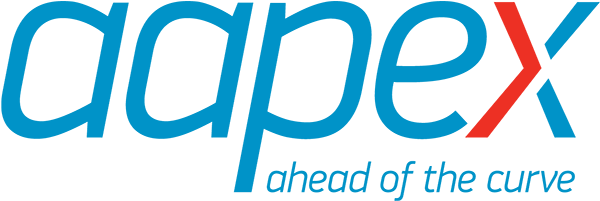The Shocking State of Electrical Training in the Classroom
Thursday, October 31, 2019

By Micheal Smyth, director of the National Alternative Fuels Training Consortium (NAFTC), a program of the Energy Institute at West Virginia University
Editor’s note: This blog post is the last in a series leading up to AAPEX 2019 in Las Vegas, and highlights alternative fuels training sessions scheduled to take place in Mobility Garage.
At trainings and public presentations around the country, we often mention the dramatic increase projected for alternative fuel vehicles – 75 million vehicles by 2050, according the U.S. Energy Information Administration. While propane and natural gas will see growth on the heavy-duty side, the most popular passenger vehicles are electric and electric-gasoline hybrids and this trend will continue.
With 6.5 million electric and electric-gasoline hybrid vehicles on the road now and with the projected growth mentioned above, it is absolutely imperative for automotive technicians to have a solid education in electricity. Adding to this reality is that today’s conventional vehicles are driven by electrical and computer systems of all sorts. If you haven’t heard the phrase “we aren’t driving computerized cars, we’re driving computers,” you will before long.

Unfortunately, electrical training isn’t keeping up with demand. Fortunately for AAPEX Mobility Garage attendees, we have Lyle Taylor from ATech Automotive Technology to share his work in the classroom educating students about this vital topic.
ATech Automotive Technology provides training resources and equipment that allows instructors to use hands-on approaches to teaching automotive diagnostics and repair.
Founded in 1984 to provide options for automotive training, ATech Automotive Technology has become a leader in the design and development of automotive trainers and courseware for original equipment manufacturers, secondary education, and military markets. Taylor is ATech’s primary educator, traveling the country sharing knowledge gleaned from more than 40 years as an independent shop owner and ASE master-certified technician.

“My approach to teaching is by building from facts to understanding, working from simple to complex, learning through discovery and then transferring knowledge to problem solving,” Taylor says. “Through what we call ‘structured skills development,’ we will explore different teaching methods with the goal of incorporating more hands-on activities into training and specifically using ATech electrical system trainers. Students learn better and retain what they learn longer when they are involved in the process.”
This session, “The Shocking State of Electrical Training in the Classroom,” will cover key components for contemporary electrical system training. Attendees will leave the session:
- Understanding the basic electrical systems skills needed now and in the future.
- With ideas about how to incorporate more hands-on training activities.
- With deeper knowledge about how to expand basic electrical skills into more advanced electrical diagnostic and troubleshooting capabilities.
- Knowing how to incorporate structured skilled development into today’s instruction.
Taylor’s presentation will take place Nov. 5, at 10:30 a.m., Level 2, Titian Ballroom, The Venetian.
Mobility Garage—Products and Training for Tomorrow at AAPEX 2019 will feature several highly regarded trainers providing information about important alternative fuel vehicle topics. Visit Mobility Garage for the full training schedule.
To attend, make sure you’re registered for AAPEX. More information about the NAFTC may be found by visiting: www.naftc.wvu.edu.
